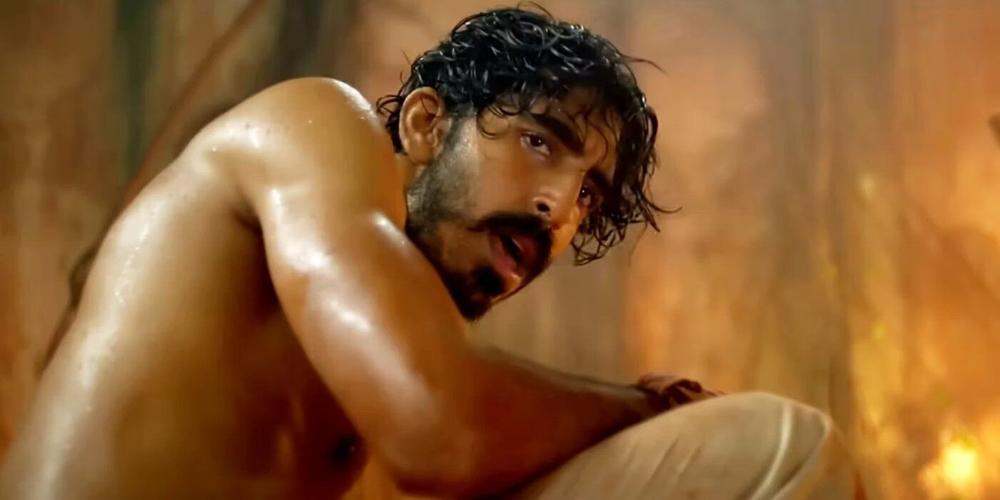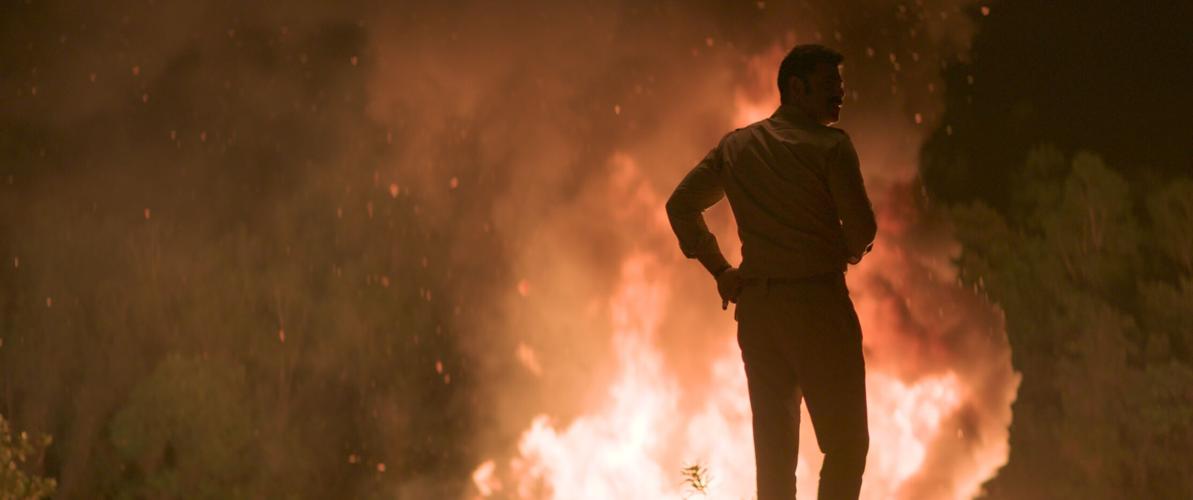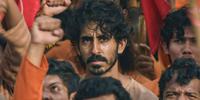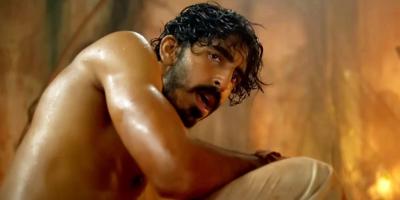Director, co-writer and star, Dev Patel references John Wick (2014) here and some might consider this film a version of that Keanu Reeves action flick but set in India. It differs in significant ways. First, there isn't a lot of gun violence. In fact, there's hardly any gun violence. Also, the motivation here is more brutal and traumatic, perhaps justifying the revenge plot more than in John Wick, but perhaps not. It's not as if guns are absent from this narrative. Patel clearly wanted this film to be more about martial arts, hand-to-hand combat, and not just bullets flying. At some points though, the lack of guns seems odd, disingenuous or contrived because Patel would prefer a bare-knuckle battle.
Patel (Lion and Slumdog Millionaire) plays an unnamed character who is out for revenge against the man who murdered his mother. In the meantime, he works as a fighter in an underground boxing arena. His fighter nickname is "Monkey Man," mainly because he wears a monkey mask during his fights. The fights can be intense and even bloody, but like professional wrestling, a lot of the matches might be staged or have predetermined outcomes. It seems as if people can bet on the fights, so it's not clear how much of the whole thing is rigged.

Sikander Kher (Sense8 and 24: India) co-stars as Rana Singh, the chief of police where Monkey Man lives. At first, he seems like a misogynist and toxic person who may not deserve to die but who is certainly coded as villainous. It's not until later that his true villainy is revealed, but the exact reason why is conveyed in a way that's muddled. Rana kills Monkey Man's mother, but the way the film is shot and edited, why Rana did it felt undefined. There are some dots that don't feel connected.
By the end, Monkey Man is propped up as some kind of vigilante warrior fighting on the behalf of impoverished or marginalized people. However, I never felt that connection. I only felt that he was fighting to avenge his mother. The film might have done so, but I never felt like it fully connected those dots to the impoverished or maginalized people. It tried to do so but in a tangential way.

Monkey Man is helped by a group of people who live in a protected Temple. Those people are known as hijra, a community of transgender, intersex or eunuchs. Aside from one, we learn nothing about these people. We learn the name of the group's leader. The leader's name is simply Alpha, played by Vipin Sharma (Hotel Mumbai). Yet, we never learn if Alpha is either transgender, intersex or an eunuch. We get nothing of Alpha's story or any of the other hijra. They're supposed to represent the impoverished or marginalized people for whom Monkey Man eventually fights. However, they're rendered as props to help Monkey Man. They're the equivalent to the magical negro trope. They're magical minorities.
The final fight sequence features intense choreography. It's perhaps not the greatest choreography. It pits the so-called Monkey Man versus Rana. However, the recent Road House (2024) had a better or at least more entertaining climax or a more complicated mano-a-mano than this one. Yet, it felt weird because I didn't believe that Rana would fight mano-a-mano at all. Rana is the chief of police, so he would have a gun or access to one. That final fight is Rana's second encounter with Monkey Man, so the fact that he wouldn't have a gun felt unlikely.

Rated R for strong bloody violence, language, sexual content, nudity and drug use.
Running Time: 2 hrs. and 1 min.
In theaters.









